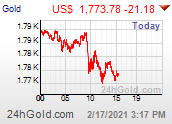Last Minute Parks Policy Changes
By Dave Felice
Just days before a meeting of the parks advisory board and without any apparent public consultation, Denver Parks and Recreation (DPR) is making what neighborhood leaders call “dramatic changes” in the proposed policy on closing parks for commercial events.
The Parks and Recreation Advisory Board (PRAB) meets Thursday, February 11, from 6:00 to 8:00 p.m. at Bogey’s Restaurant in City Park Golf Course at East 26th Avenue and York.
DPR Senior Policy Advisor Chantal Unfug sent a notice of the revised policy Friday afternoon. Almost immediately, Jay and Kathleen Rust of Neighbors and Friends of Cheesman Park sent an e-mail message to City Council President Jeanne Robb. The Rusts question the intent of the amendments, and the lack of public involvement.
A task force of city employees, event promoters, and a few neighborhood representatives has been working on the policy for two years. Coincident with Council approval of a controversial contract for commercial movies in Civic Center and City Parks, DPR is pressing for adoption of the “admissions based events” policy.
Jay and Kathleen Rust say they were “shocked” to see the “last minute” modifications. “These changes (in section 5.2.1 and 5.2.5) are certainly not minor and they will definitely impact those neighborhoods ‘lucky enough’ to have these events in their parks up to four or five times in one month,” write the Rusts. “That could mean 48 to 60 times in a year that a section of an individual park is closed off to the public for a private, profit making event. The same for-profit group can come back every 12 days. Is this truly what we want for our parks?”
The PRAB held a public hearing at its meeting in December, but took no position on admissions based events. Whatever position the PRAB decides to adopt is not binding on Parks and Recreation. Assistant City Attorney Patrick Wheeler has consistently maintained that allowing closed commercial events is within the department’s “rules and regulations” authority. All city agencies have dismissed calls by neighborhood advocates for a public vote on the matter.
“If you have comments, there is an open comment period at the beginning of every meeting, and of course you can always contact the board members directly,” says Unfug. “If there is not time for people to speak, we will have comment cards.”
If past PRAB practice is followed, the “open comment period” will consist of allowing members of the public to speak for three minutes or less at the very beginning of the meeting. Those who are not PRAB members are not allowed to speak during the main part of the meeting.
“Jeanne, did you receive advance notice of these changes or did Parks decide to keep you in the dark like the rest of us?” ask the Rusts in their message to Robb. “When does Parks and Recreation plan to inform the general public of these proposed changes? The way it is being handled is the very thing that gets the public's blood boiling and reinforces the mistrust of the upper echelon of the department.”
The proposed policy is posted on the city web site here. Comments can be sent to Unfug by e-mail: L.Unfug@denvergov.org. All e-mail is considered a public document unless the sender requests privacy.
The PRAB appears split in its opinion of admissions based events. Only Councilwoman Carla Madison’s appointee, Keith Pryor, has expressed unabashed advocacy for allowing commercial park closures.
Many neighborhood advocates have suggested that if the city ought to develop a genuine festival park for commercial outdoor events. As proposed in the policy, fees for use of park land are deliberately low to encourage more private operators.
It has been suggested that the revisions in the City Park traffic circulation plan are designed to facilitate commercial events.
Just days before a meeting of the parks advisory board and without any apparent public consultation, Denver Parks and Recreation (DPR) is making what neighborhood leaders call “dramatic changes” in the proposed policy on closing parks for commercial events.
The Parks and Recreation Advisory Board (PRAB) meets Thursday, February 11, from 6:00 to 8:00 p.m. at Bogey’s Restaurant in City Park Golf Course at East 26th Avenue and York.
DPR Senior Policy Advisor Chantal Unfug sent a notice of the revised policy Friday afternoon. Almost immediately, Jay and Kathleen Rust of Neighbors and Friends of Cheesman Park sent an e-mail message to City Council President Jeanne Robb. The Rusts question the intent of the amendments, and the lack of public involvement.
A task force of city employees, event promoters, and a few neighborhood representatives has been working on the policy for two years. Coincident with Council approval of a controversial contract for commercial movies in Civic Center and City Parks, DPR is pressing for adoption of the “admissions based events” policy.
Jay and Kathleen Rust say they were “shocked” to see the “last minute” modifications. “These changes (in section 5.2.1 and 5.2.5) are certainly not minor and they will definitely impact those neighborhoods ‘lucky enough’ to have these events in their parks up to four or five times in one month,” write the Rusts. “That could mean 48 to 60 times in a year that a section of an individual park is closed off to the public for a private, profit making event. The same for-profit group can come back every 12 days. Is this truly what we want for our parks?”
The PRAB held a public hearing at its meeting in December, but took no position on admissions based events. Whatever position the PRAB decides to adopt is not binding on Parks and Recreation. Assistant City Attorney Patrick Wheeler has consistently maintained that allowing closed commercial events is within the department’s “rules and regulations” authority. All city agencies have dismissed calls by neighborhood advocates for a public vote on the matter.
“If you have comments, there is an open comment period at the beginning of every meeting, and of course you can always contact the board members directly,” says Unfug. “If there is not time for people to speak, we will have comment cards.”
If past PRAB practice is followed, the “open comment period” will consist of allowing members of the public to speak for three minutes or less at the very beginning of the meeting. Those who are not PRAB members are not allowed to speak during the main part of the meeting.
“Jeanne, did you receive advance notice of these changes or did Parks decide to keep you in the dark like the rest of us?” ask the Rusts in their message to Robb. “When does Parks and Recreation plan to inform the general public of these proposed changes? The way it is being handled is the very thing that gets the public's blood boiling and reinforces the mistrust of the upper echelon of the department.”
The proposed policy is posted on the city web site here. Comments can be sent to Unfug by e-mail: L.Unfug@denvergov.org. All e-mail is considered a public document unless the sender requests privacy.
The PRAB appears split in its opinion of admissions based events. Only Councilwoman Carla Madison’s appointee, Keith Pryor, has expressed unabashed advocacy for allowing commercial park closures.
Many neighborhood advocates have suggested that if the city ought to develop a genuine festival park for commercial outdoor events. As proposed in the policy, fees for use of park land are deliberately low to encourage more private operators.
It has been suggested that the revisions in the City Park traffic circulation plan are designed to facilitate commercial events.










0 comments:
Post a Comment